🕐 ESTA REPORTAGEM FOI PUBLICADA EM Janeiro de 2023. INFORMAÇÕES CONTIDAS NESTE TEXTO PODEM ESTAR DESATUALIZADAS OU TEREM MUDADO.
 Anti-democratic content surged on social media before Brazil's 2022 election — and it's not slowing down
Anti-democratic content surged on social media before Brazil's 2022 election — and it's not slowing down
The volume of content questioning the reliability of the Brazilian election system, asking for a military coup, and attacking democratic institutions, such as Brazil's Congress and TSE (Superior Electoral Court), rose sharply on social media in June 2022, months before the official presidential campaign started. That's the conclusion of an analysis by Radar Aos Fatos with data gathered between March 2021 and January 2023, when rioters destroyed buildings in Brasilia.
Radar, a tool that automatically collects and assesses thousands of posts per day on six platforms, has reported a significant increase of anti-democratic content on WhatsApp, Twitter, Facebook, YouTube, and hyperpartisan websites.
- From June 2022 to January 2023, it detected more than 991,000 tweets on "attacks to democracy";
- This number is 1,278% higher than the same period a year before (72,000);
- The other social media platforms had smaller, but significant increases: 281% on WhatsApp, 181% on hyperpartisan websites, 115% on YouTube, and 71% on Facebook;
- Even after the elections, the number of anti-democratic posts has remained high;
- This analysis was featured in a Washington Post article on electoral disinformation in Brazil published last Saturday (21st),
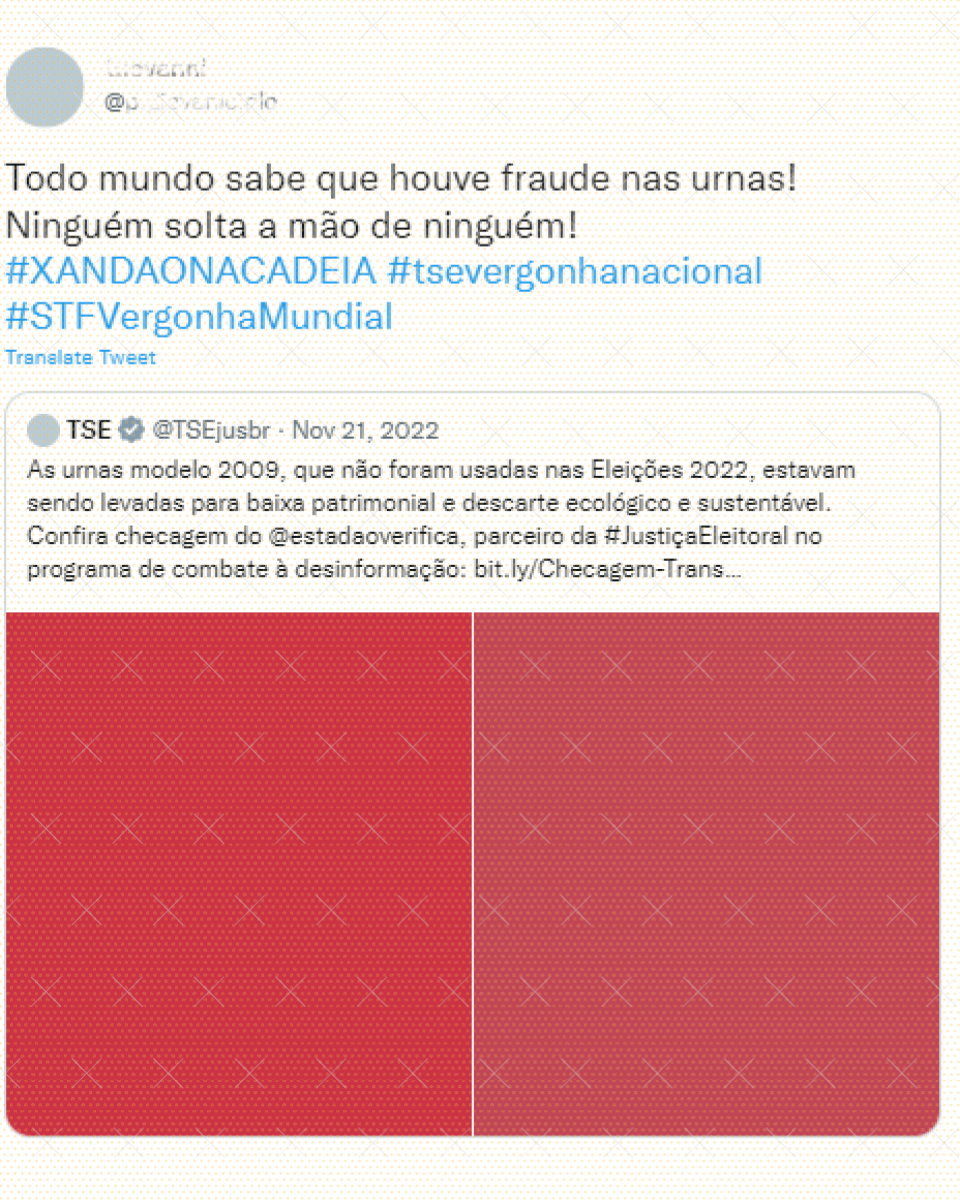 Electronic voting. Even when confronted with fact-checking, users were questioning the electronic ballot box security and claimed that the 2022 elections were a fraud (Source: Twitter)
Electronic voting. Even when confronted with fact-checking, users were questioning the electronic ballot box security and claimed that the 2022 elections were a fraud (Source: Twitter)
Coup attempt. A qualitative analysis of a random sample of 400 messages posted on Twitter and WhatsApp during the highest peak of anti-democratic content (Jun. 2022-Jan.2023) suggests that the sudden increase was not related to any specific event that took place in June but to the upcoming 2022 elections.
- In the sample analyzed, 35% of the content had a misleading claim. The most common was that the elections were a fraud, followed by attempts to associate Brazil's president Luiz Inácio Lula da Silva with organized crime;
- 9.5% of the posts flagged openly call for a coup, even if they don't contain any verifiable misinformation. For example, they ask for military intervention or encourage users to attend anti-democratic acts;
- The press was also a frequent target: attacks on media outlets and journalists were found in 23% of the messages. They often claim that the media persecutes Brazil's former president Jair Bolsonaro, favors Lula, and manipulates public opinion polls;
- Attacks on democratic institutions and their representatives, such as the STF (Federal Supreme Court), the TSE (Electoral Supreme Court), and Brazil's Congress, were present in 7% of the content analyzed;
- Finally, other flagged messages consisted of attacks and offenses against politicians and left-wing parties, especially president Lula and the labor party (PT). There was also content targetting Bolsonaro and his allies, although in a significantly lower scale.
 Anti-PT. Part of the content analyzed attacked president Lula or the left (Source: Facebook)
Anti-PT. Part of the content analyzed attacked president Lula or the left (Source: Facebook)
Big tech. In a statement sent to Aos Fatos, WhatsApp said that it cooperates with authorities to protect the integrity of the electoral process and "it is important that inappropriate behaviors, besides offensive and possibly illegal contents, be reported to competent authorities."
Aos Fatos has also contacted Facebook, Twitter, and WhatsApp press offices. This text will be updated in the case of any responses.
Methodology. 'The data was collected by Radar Aos Fatos, an automated tool that uses a proprietary algorithm to estimate the probability of certain posts topics being "low quality."
When assessing attacks on democracy, this includes disinformation about the democratic process, messages with anti-democratic content (claims for the intervention of the Army, for example), besides attacks (threats or offenses) to personalities or institutions from the press or politics.
See more examples of posts found by Radar Aos Fatos below:
 Article 142. Post on a Facebook group using fake news about fraud in the elections was proven (Source: Facebook)
Article 142. Post on a Facebook group using fake news about fraud in the elections was proven (Source: Facebook)
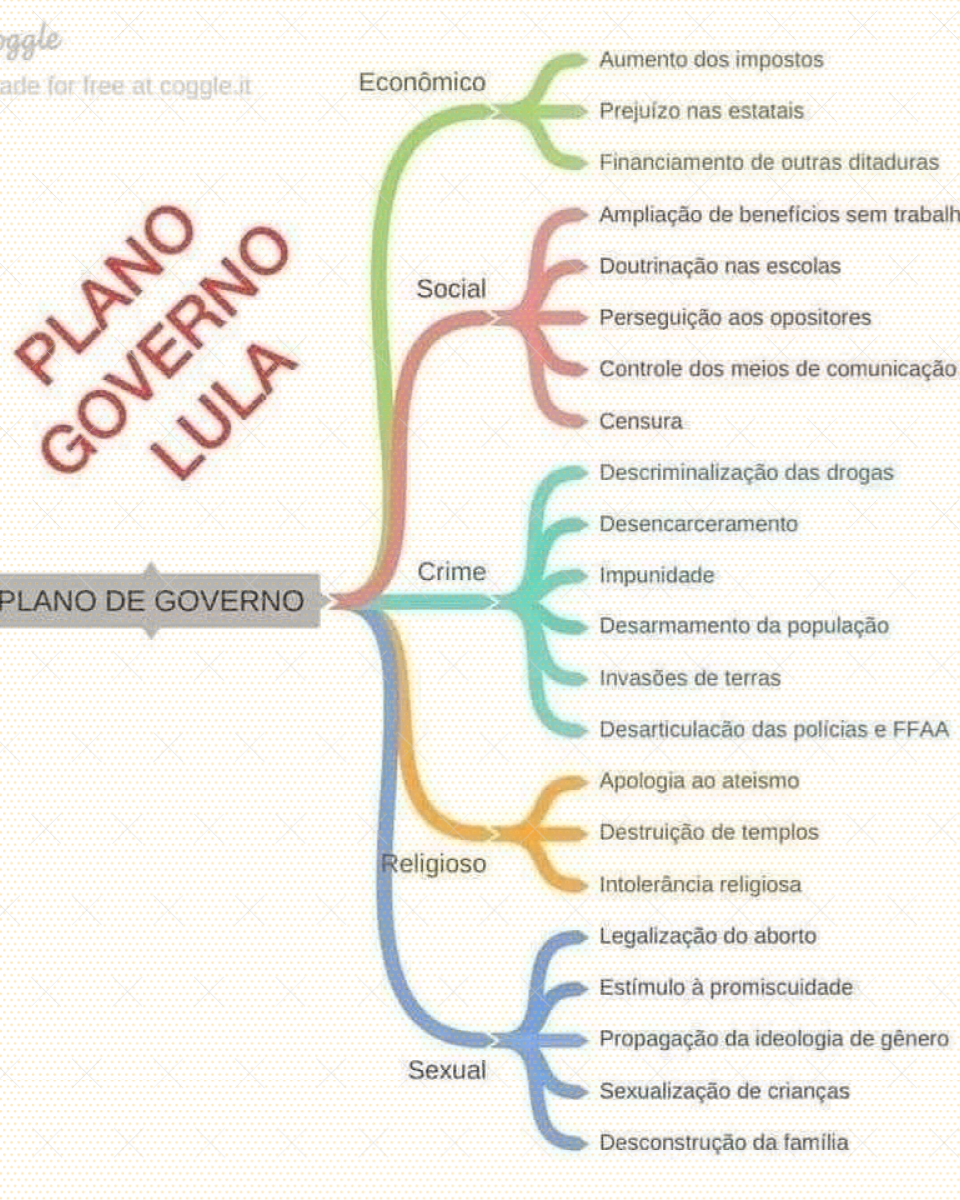 The plan. Messages on WhatsApp claimed, without any evidence, that religious persecution, drug decriminalization, and "sexualization of children" would be some of the proposals of the new Lula administration.
The plan. Messages on WhatsApp claimed, without any evidence, that religious persecution, drug decriminalization, and "sexualization of children" would be some of the proposals of the new Lula administration.
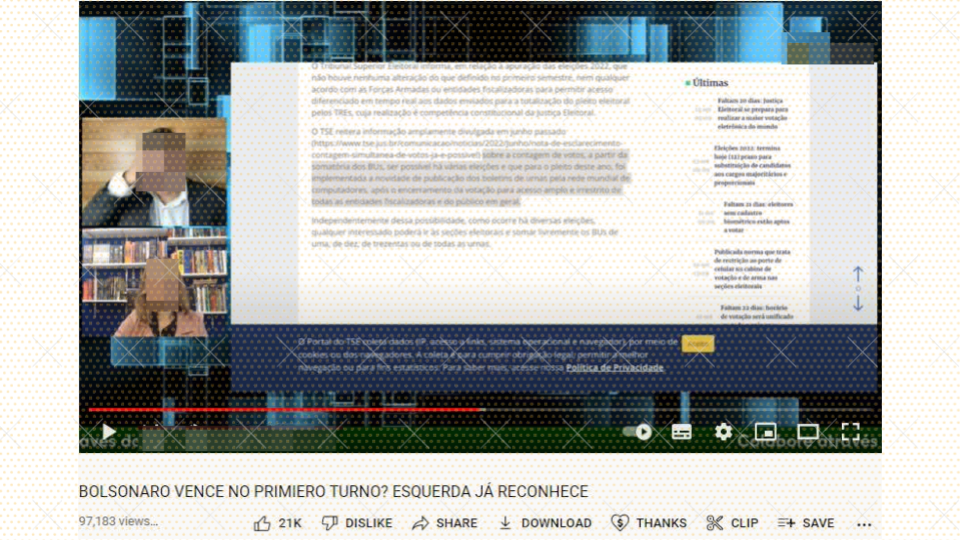 Polls. Posts questioning security in vote counting (Source: YouTube)
Polls. Posts questioning security in vote counting (Source: YouTube)
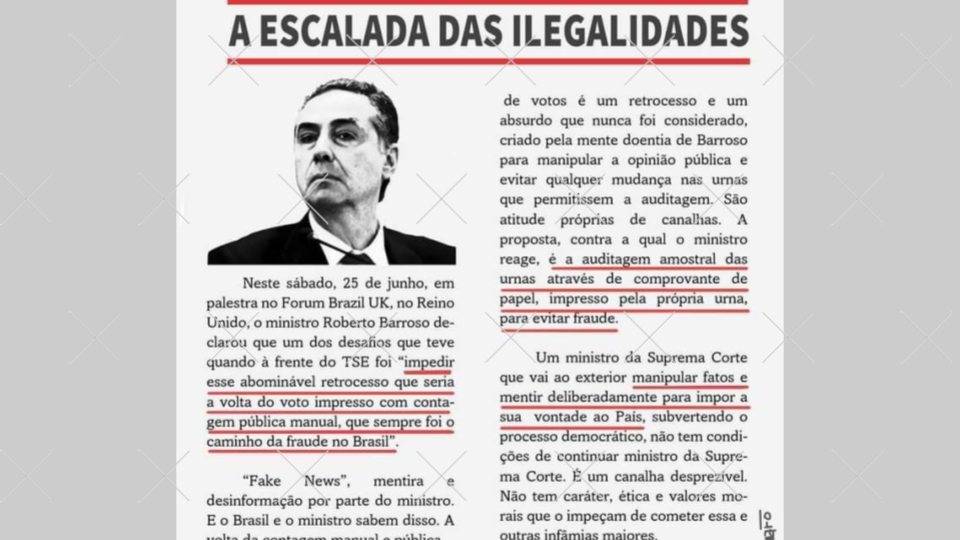 Supreme Court. Picture shared on WhatsApp uses misinformation to criticize Supreme Court Justice Barroso
Supreme Court. Picture shared on WhatsApp uses misinformation to criticize Supreme Court Justice Barroso

Coup attempt. A message shared on Twitter asks the Army to prevent Lula from taking office
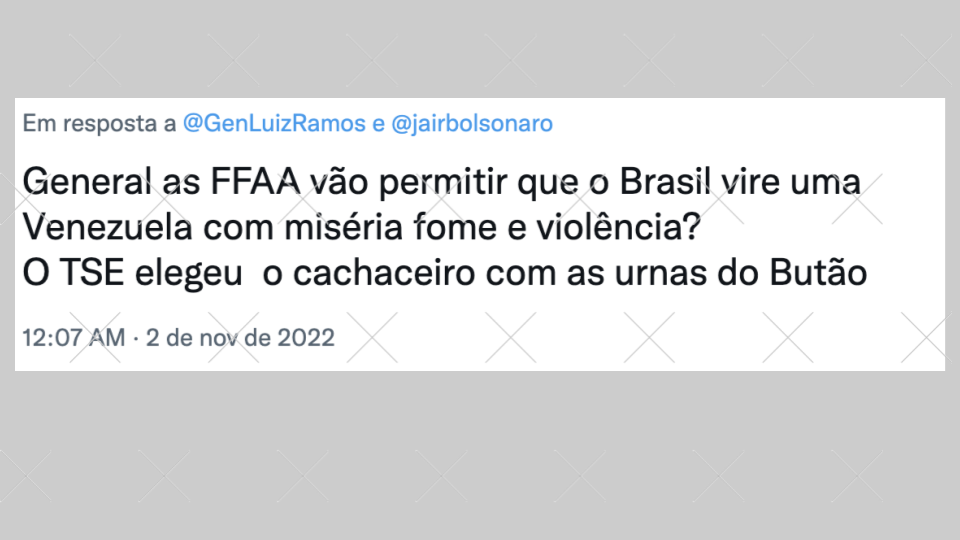 The military and the voting machines. Tweet jokes about the reliability of voting machines and asks military men for help
The military and the voting machines. Tweet jokes about the reliability of voting machines and asks military men for help
